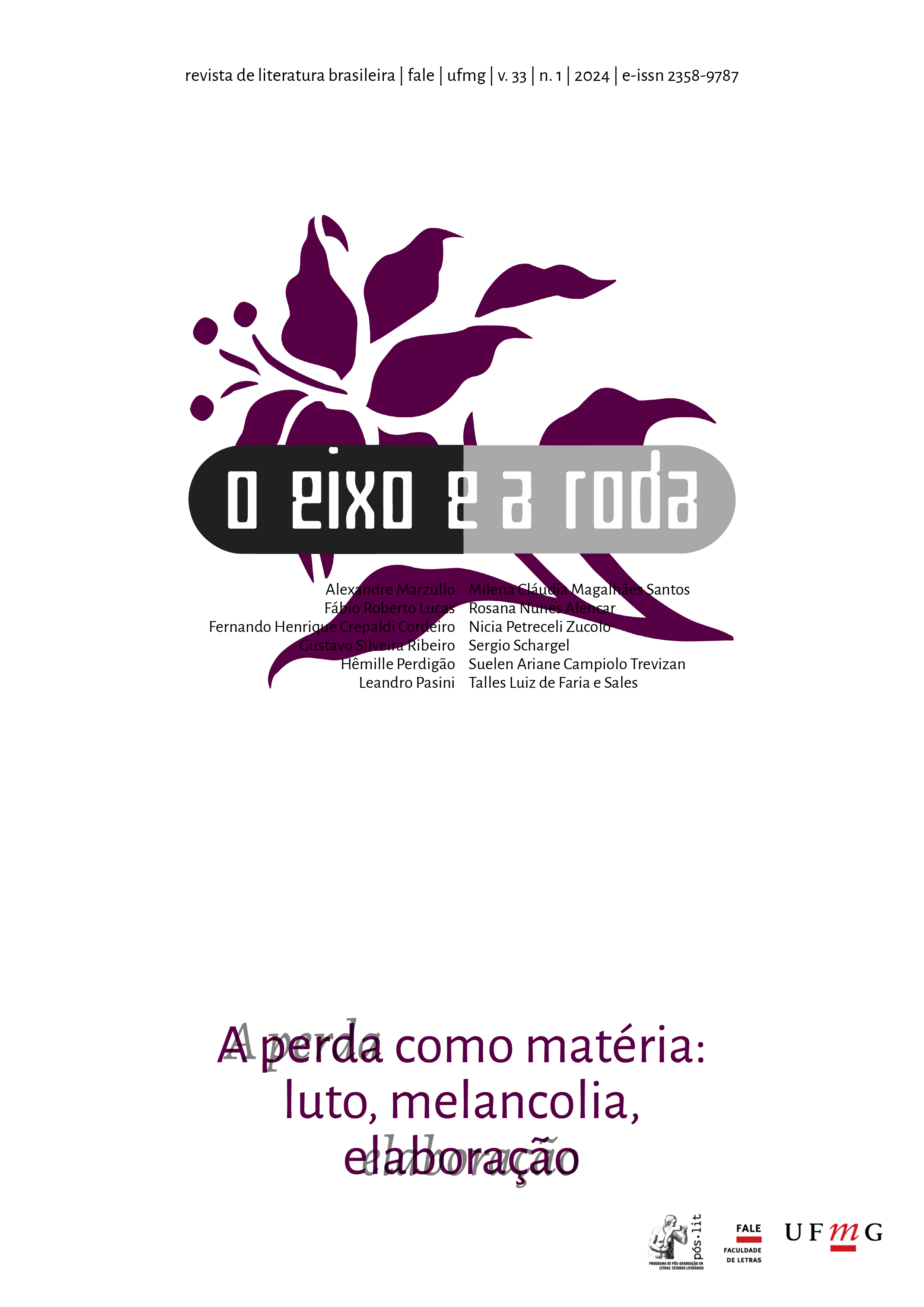Drowned Word
Poetry and Social Disaggregation in Novo endereço by Fabio Weintraub
Keywords:
contemporary brazilian poetry; economic crisis; poverty and poetry; elegy.Abstract
This essay proposes a new reading of Fabio Weintraub’s Novo endereço, resumed more than twenty years after the original publication of this award-winning book of poems. The intention is to show the disturbing actuality of the book, since the rough and cutting form of verses, the stylistic predominance in the ironic-colloquial, and their interest in the ruins of the metropolis and marginalized social types (sick people, poor workers, homeless people and all sorts of abandoned) is echoed in a new time of economic crisis and social disaggregation, the devastated present, also by the effects of the pandemic and the neoliberal turn of the right and far-right governments that took over the country between 2016 and 2022.
References
AGAMBEN, Giorgio. Profanações. Trad. Selvino J. Assmann. São Paulo: Boitempo, 2007.
ALVIM, Francisco. Poemas 1968-2000. São Paulo: Cosac Naify; Rio de Janeiro: 7Letras, 2004.
BOLANO, Roberto. Noturno do chile. Trad. Eduardo Brandão. São Paulo: Companhia das Letras, 2004.
FIGUEIREDO, Priscila. Apresentação. In: WEINTRAUB, Fábio. Nueva dirección/Novo endereço. São Paulo: Nankin Editorial, 2004.
FREITAS, Manuel. [Orelha do livro]. In: WEINTRAUB, Fábio. Treme ainda. São Paulo: Ed. 34, 2015.
PARRA, Nicanor. Obras completas & algo + (vol. I). Barcelona: Galáxia Gutenberg, 2006.
RUFINONI, Simone Rossinetti. Desvalimento e suicídio: aspectos da lírica de Fabio Weintraub. In: REDONDO, Tercio; RUFINONI, Simone Rossinetti (org.) Caminhos da lírica brasileira contemporânea: ensaios. São Paulo: Nankin Editorial, 2013; p. 135-176.
WEINTRAUB, Fabio. Nueva dirección/Novo endereço. Trad. Lourdes Arencibia. São Paulo: Nankin Editorial; Juiz de Fora: Funalfa; Havana, Cuba: Casa de Las Américas, 2004.




 Esta obra está licenciada com uma Licença
Esta obra está licenciada com uma Licença 